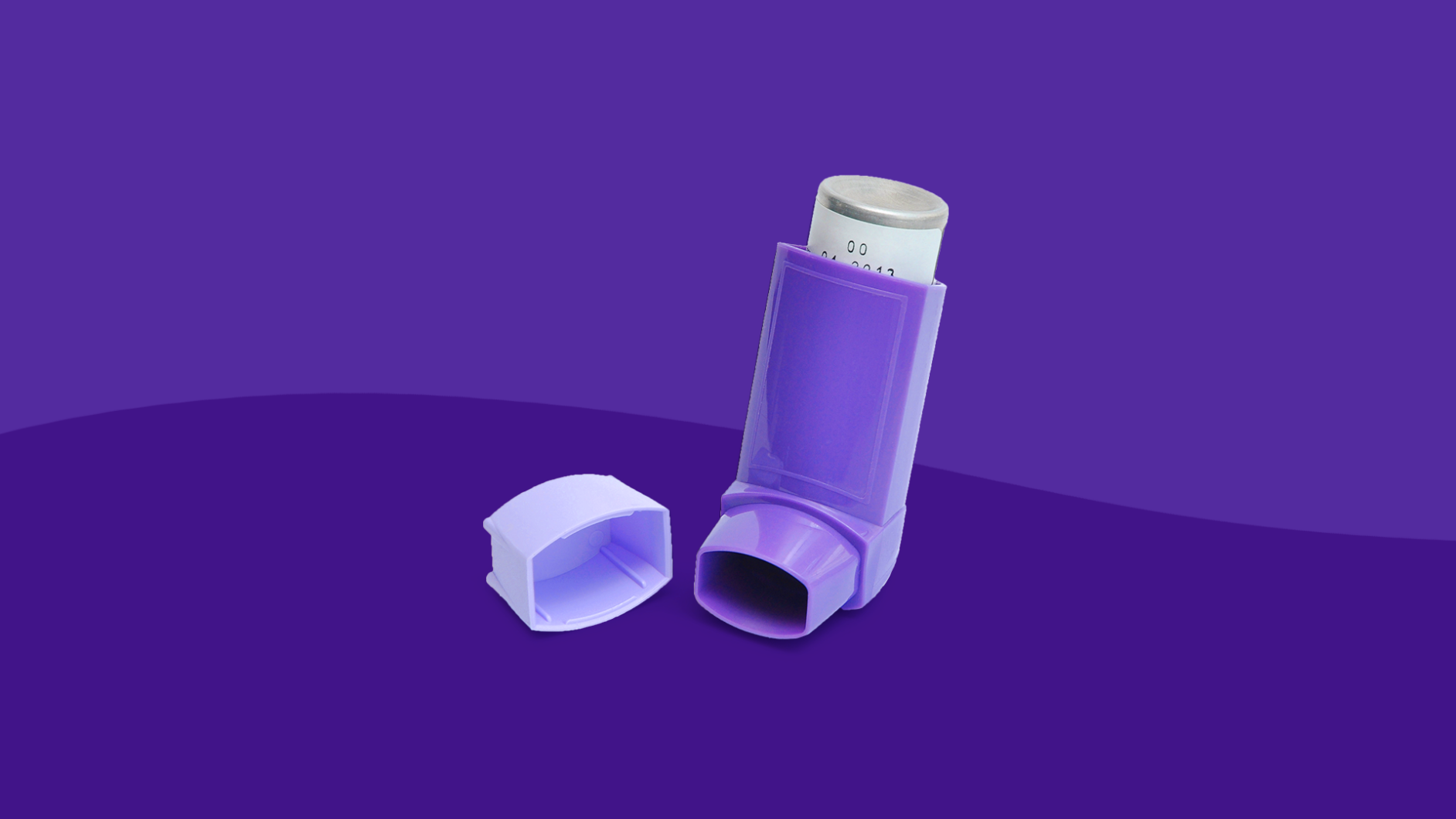In 2023, Flovent manufacturer GlaxoSmithKline (GSK) announced their decision to discontinue Flovent-branded products starting January 1, 2024. The popular brand-name inhalers have been a go-to asthma treatment for many patients since the 1990s. Although the manufacturer says a generic is on the way, healthcare professionals have their own concerns.
What is Flovent?
Flovent contains the active ingredient fluticasone propionate, a corticosteroid used to control asthma symptoms. It helps prevent and reduce airway inflammation in patients with asthma. Flovent must be used every day; it is not a rescue inhaler and does not stop an acute attack.
There were two widely used options for patients: Flovent HFA (fluticasone propionate inhalation aerosol) and Flovent Diskus (fluticasone propionate inhalation powder). Flovent HFA was a metered-dose inhaler, and Flovent Diskus was a dry powder inhaler.
Both forms of Flovent came in three strengths, with the lower strengths being approved for children aged 4 to 11 years.
What do I do if I’m prescribed Flovent?
As of January 1, patients will not be able to fill new or refill prescriptions of Flovent through their healthcare provider or pharmacy. The authorized generics were introduced in May 2022 and October 2023 but will be used exclusively starting January 1, 2024. If you have been previously prescribed Flovent and rely on it to help with your asthma symptoms, contact your healthcare provider and ask if you can switch to an authorized generic for Flovent, or if they recommend another alternative. Make this call as soon as possible—in case there are any insurance authorizations required, which can take some time.
Alternatives to Flovent include Pulmicort Flexhaler, Arnuity Ellipta, and Qvar Redihaler. These options are similar in price but coverage may vary by insurance provider.
There are two broad types of asthma treatment options: quick-relief medications and maintenance or control medications. Quick-relief medications help open up the airways of the lungs quickly and include inhalers such as:
- Ventolin HFA (albuterol)
- Xopenex HFA (levalbuterol)
Flovent and alternatives are a type of control medication called inhaled corticosteroids (ICS). Other types of control medications include:
- Long-acting beta-agonists (LABAs), such as salmeterol (these must always be combined with an ICS)
- Combination medications that contain ingredients from more than one category such as an ICS plus a LABA, like Advair (fluticasone and salmeterol)
- Long-acting muscarinic antagonists (LAMAs), such as Spiriva
- Leukotriene modifiers, such as Singulair (montelukast)
- Mast cell stabilizers, such as cromolyn
- Oral corticosteroids, such as prednisone
- Monoclonal antibodies, such as Nucala (mepolizumab)
What are the concerns around generic Flovent?
The promise of an authorized generic with an identical formula may seem promising for patients, but it presents a few unknowns. GSK says they hope a generic version of Flovent will save patients money, or at least be more affordable, according to a statement to the Asthma and Allergy Foundation of America. However, whether a generic will be more affordable is unclear.
For one, an authorized generic is a term describing a brand name drug marketed and sold without the attached brand name. In other words, the generic will still be made and sold by GSK, not a competing manufacturer. With no announcement of how much the generic will cost, its purported affordability is still up in the air.
Furthermore, healthcare providers alike are concerned about patients needing to find an alternative to Flovent in the meantime. While there are alternatives on the market, patients will need to find what works best for them—both medically and financially. Not all alternatives will have the same insurance coverage.
In addition, it is still unclear which insurance providers will cover GSK’s new generic.
Many have pointed out that GSK’s shift toward “potentially lower cost alternatives” comes at a convenient time. Beginning on January 1, the original 100% cap on Medicaid drug rebates for drug manufacturers was eliminated following the passing of the American Rescue Plan (ARP) Act of 2021. Creating a cheaper alternative will help GSK combat the risk of potential losses when selling drugs to Medicaid. It may also help them avoid fines for increasing the price of certain drugs, Flovent included.
If you take Flovent, don’t worry. There are plenty of options for inhaled corticosteroids and you can work with your provider or pharmacist to find the best treatment that’s also affordable for you.
Sources
- Flovent HFA, Flovent.com
- What is the difference between metered dose inhalers (MDIs) and dry powder inhalers (DPIs)?, Asthma and Allergy Foundation of America (2023)
- Flovent asthma inhalers pulled from shelves and replaced with generic Jan. 1, USA Today (2024)
- Flovent HFA and Flovent Diskus Asthma Medicines Being Discontinued, Asthma and Allergy Foundation of America (2023)
- FDA List of Authorized Generic Drugs, Food & Drug Administration (2023)
- The impact of AMP cap removal on Medicaid drug prices, IQVIA (2023)











